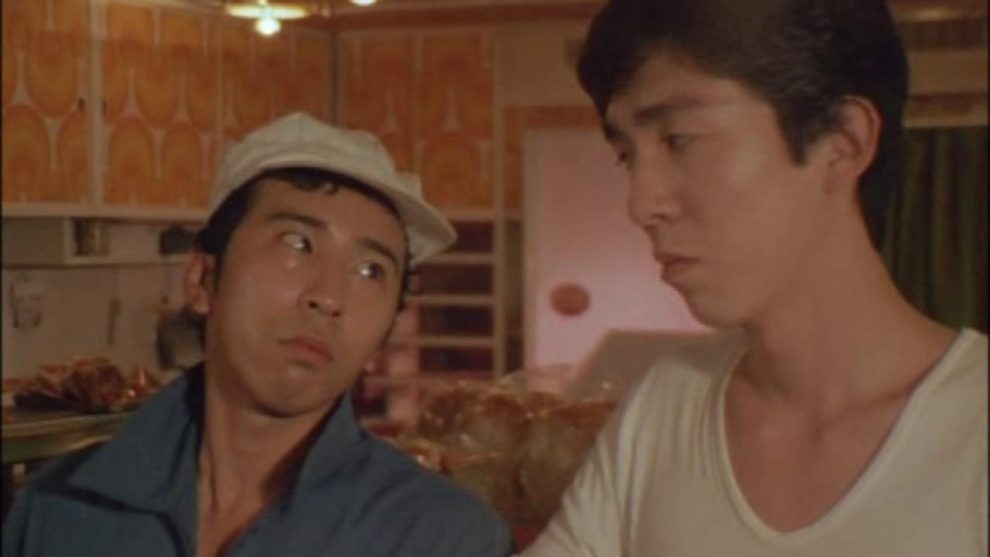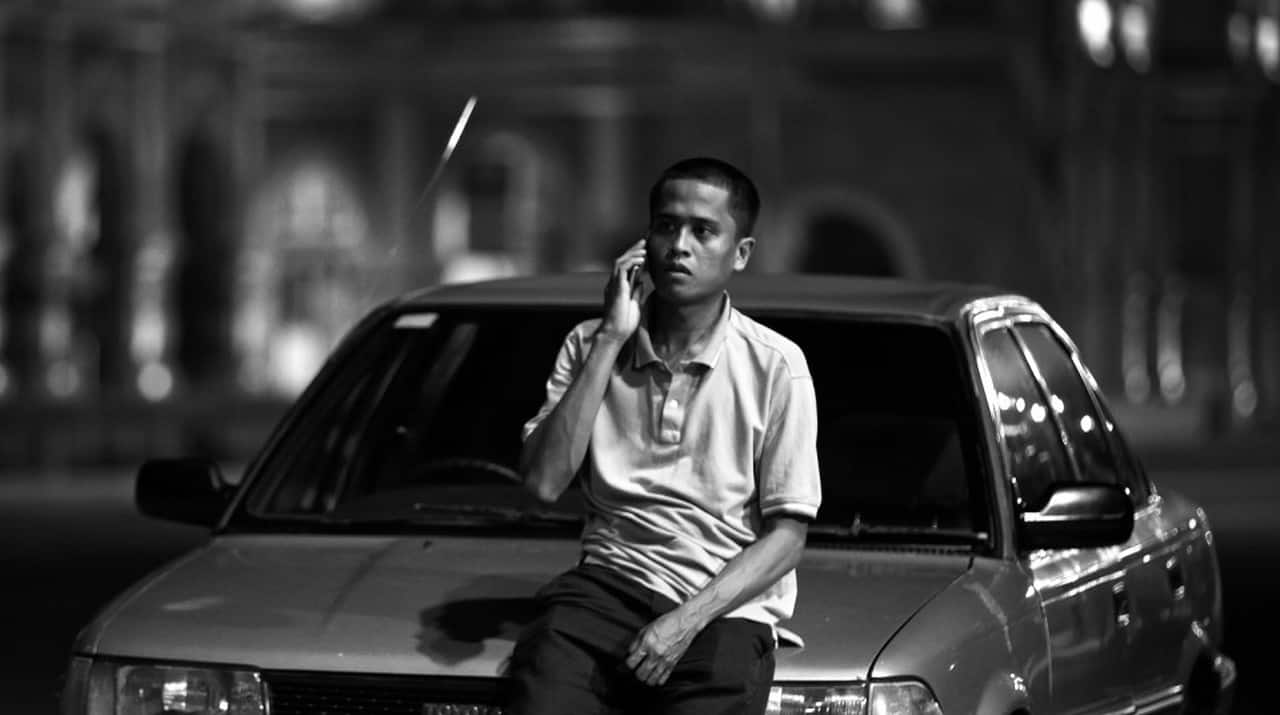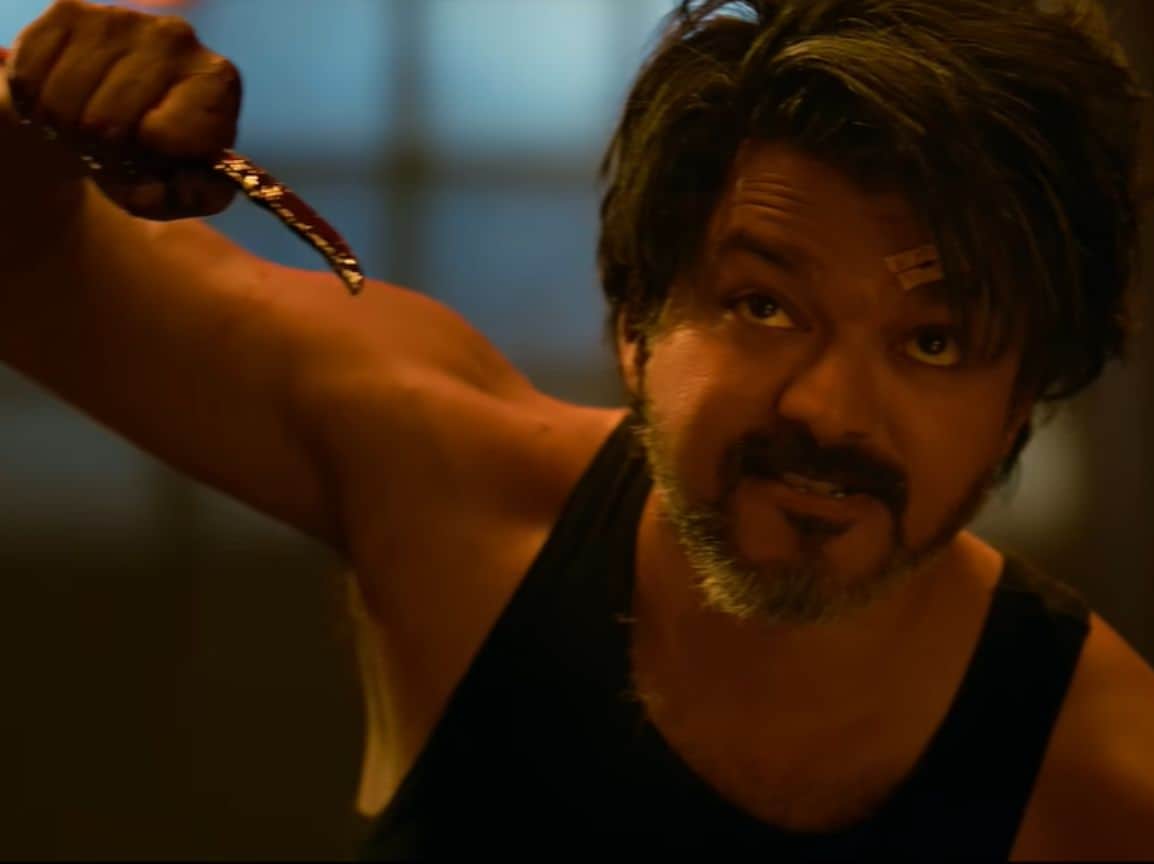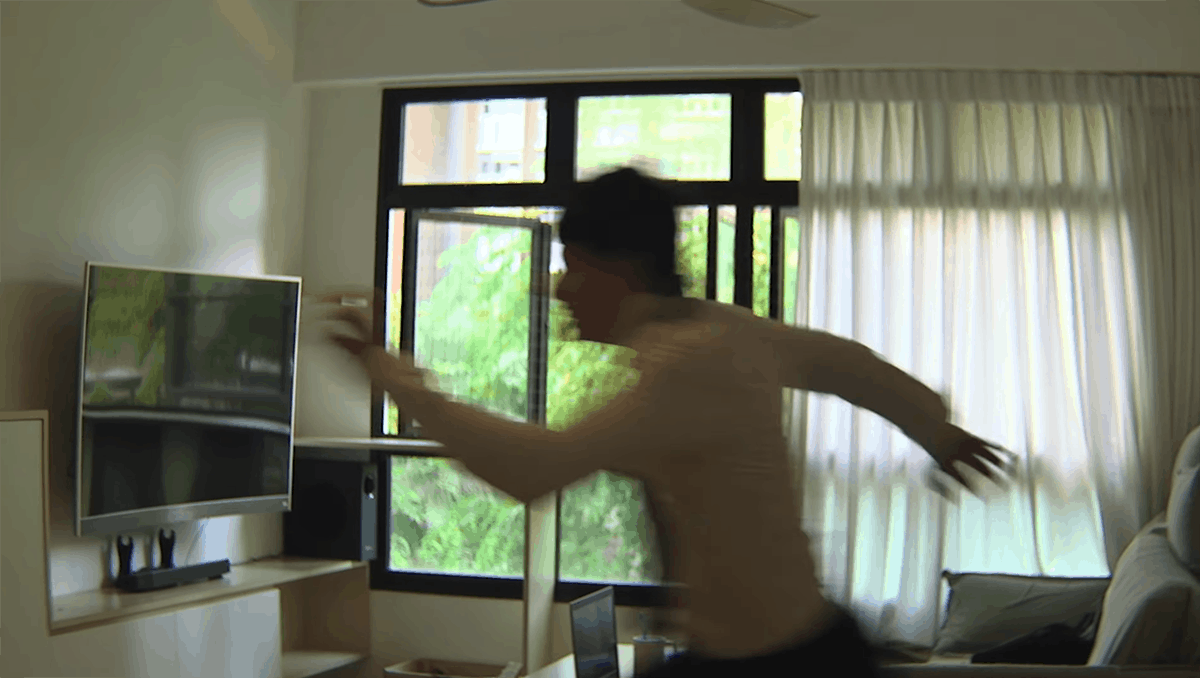Based on the short story “Pan'ya Shugeki' (it seems it has not been translated yet) Naoto Yamanaka's second adaptation of a Haruki Murakami novel (following “A Girl She is 100%”) takes more creative liberties regarding the original than the first movie, but retains the great aesthetics, although through a less experimental approach.

The story revolves around two young men, who introduce themselves and their hunger in the intro of the film, though a talking heads approach, before the two heads come together eventually, in the same frame. Eventually, they decide to rob a local bakery, which is run by a Wagner-enthusiast communist, with the irony of the character being one of the most hilarious aspects of the story. As they enter the shop and prepare their move, they stumble upon a young woman, who cannot choose between Japanese pastry and French croissants, while she also seems to be equally interested in the ways her choices appear on the tray she carries. As time progresses, the tension mounts, with the two protagonists becoming more and more anxious, as they wait for the woman to leave to proceed with their plan. The result of their potential robbery however, is completely different than what they expected.
The still cinematography, the switching between monochrome and color, and the excessive narration are also present here, as in the first film, but the approach in general is much “tamer”, at least aesthetically, with the sole elements that truly stand out being the classical music and the pastry arrangements on the tray, which follows an almost ritualistic approach, with the candy themselves being impressively framed and colored.
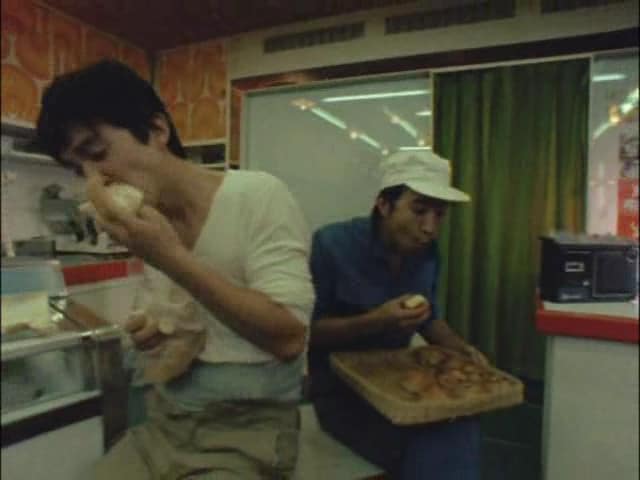
Contextually though, the movie is much more interesting. The way hunger can lead to crime is one of the main comments here, while the ways people struggle in the midst of Japanese traditionalism and westernization is mirrored in the woman trying to make a choice and failing. This aspect also seems to comment that the plethora of choices can also create problems for people, instead of simply giving more options, while the antithesis created by the communist owner who listens to Wagner is simply hilarious. Lastly, the ending of the film states that the concept of “Your rights end where mine begin” can be truly annoying, with the short closing with a distinct comment against democracy, although in playful fashion. And some boxing.
This approach, of dealing with serious issues through a perspective that can be described as humoristic, farcical and even slapstick on occasion, is what makes the short rather entertaining, while adding to its contextual depth. The editing, which induces the narrative with a rather fast pace, also adds to this style, with the cuts, essentially, being part of the humor.
Cho Bang-ho and Taro Suwa's acting fits the slapstick aesthetics quite nicely, while the moment they manage to get something to eat is bound to make the viewer laugh, as their actions resemble hungry animals.
“Attack on Bakery” is an excellent short, which will find much appeal even among people who do not know or do not like Murakami's works.


